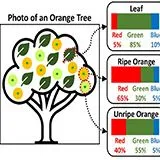Agriculture
Available Languages:
English
The science or practice of farming, including growing crops and raising animals for the production of food, fiber, fuel and other products. [NALT]
Agriculture or farming is the cultivation and breeding of animals, plants and fungi for food, fiber, biofuel, medicinal plants and other products used to sustain and enhance human life. [AGROVOC]
Narrower Topics
Agricultural Health and Safety
The promotion of a safe and healthy environment to support the physical and mental well-being among humans engaged in agricultural activities.
Related Topics: Agriculture, Economic Value, Land Resources
Agricultural Water Management
The study, planning, monitoring, and application of quantitative and qualitative control and development techniques for long-term, multiple use of water resources for agricultural purposes including irrigation and livestock watering. [AGROVOC]
Related Topics: Agriculture
Related Topics: Agriculture, Tourism
Agrochemicals
Agrochemicals are commercially produced, usually synthetic, chemical compounds used in farming such as a fertilizer, pesticide or soil conditioner.,Any substanceor mixture of substances used or intended to be used for preventing, destroying, repelling, attracting, inhibiting, or controlling any insects, rodents, birds, nematodes, bacteria, fungi, weeds or other forms of plant, animal or microbial life regarded as pests. [AGROVOC]
Animal Husbandry
Animal husbandry is the branch of agriculture concerned with animals that are raised for meat, fibre, milk, eggs, or other products. [AGROVOC]
Apiculture
Honey bees are known to be the strongest link in the chain between food producers and consumers. They contribute nearly $20 billion to the crop industry by providing pollination services all over the United States, and Florida's honey industry is ranked among the top five in the nation. There are nearly 5,000 registered beekeepers in the state of Florida, managing approximately 630,000 colonies. Unfortunately, high colony loss rates of honey bees have been reported throughout the world. Stressors, such as Varroa destructor, queen quality, and nutrition are just some of the reported factors associated with this decline. Researchers have been working to identify best management practices to mitigate these losses. All recommendations in these publications are based on scientific literature about honey bees in Florida and around the world.
Related Topics: Agriculture, Careers
Cellular Agriculture
The production of agricultural products (meat, milk, leather, eggs, gelatin, etc.) from cell cultures.
Related Topics: Agriculture, UF/IFAS Extension Initiative 4: Sustainable Communities
Related Topics: Agriculture, Cuba
Farming Systems
The farming system is defined as a decision-making unit comprising the farm household, cropping systems, and livestock systems, which transforms land, external inputs (seed, pesticides, nutrients, etc.), and labor (including knowledge) into useful products that can be consumed or sold. [NALT]
Horticulture
Horticulture is defined as that branch of agriculture concerned with growing plants that are used by people for food, for medicinal purposes, and for aesthetic gratification. [NALT]
Related Topics: Agriculture, Mexico
Related Topics: Agriculture, Natural Resources
Nutrient Management
Nutrient management is the science and practice directed to link soil, crop, weather, and hydrologic factors with cultural, irrigation, and soil and water conservation practices to achieve optimal nutrient use efficiency, crop yields, crop quality, and economic returns, while reducing off-site transport of nutrients (fertilizer) that may impact the environment.
Protected Cultivation
The production of high-value vegetables and other horticultural crops in greenhouses and vertical farms. It allows farmers to grow cash crops on small plots in marginal, water-deficient areas where traditional cropping may not be viable. Also called protected agriculture or protected crop production.
Urban Agriculture
Urban agriculture (UA) is defined as the production of crop and livestock goods within cities and towns.
Related Topics: Agriculture, Wildlife
